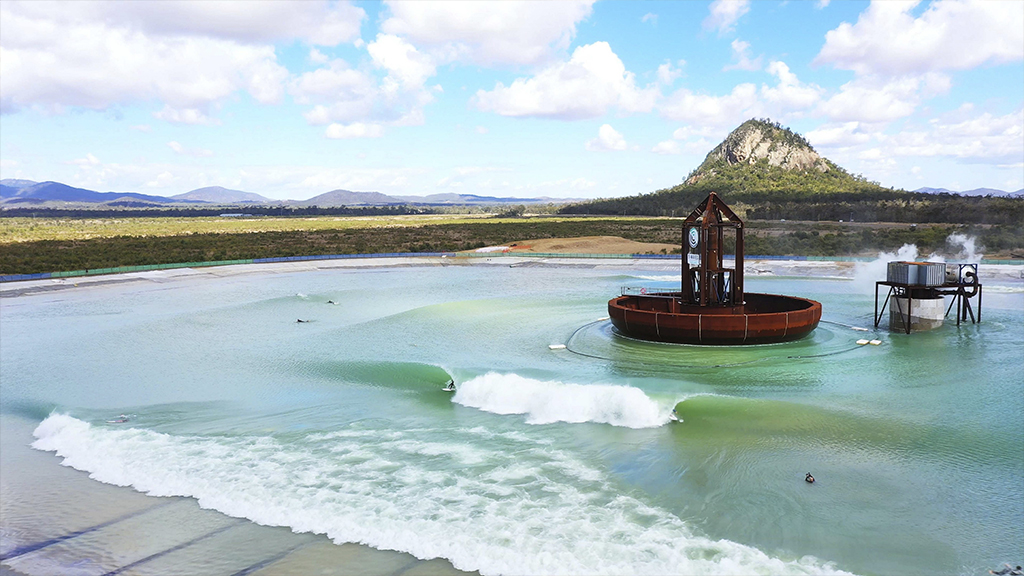The Surf Lakes Prototype is setting new standards in artificial wave generation, and its recognition as a finalist in the 2020 Australian Engineering Excellence Awards reflects its innovation. Situated in Yeppoon, Queensland, this full-scale prototype uses a central wave generator to create multiple types of surfable waves, offering an exciting experience for surfers at all levels. ASPEC Engineering is proud to have played a key role in the project, providing essential civil, structural, and mechanical engineering services.
ASPEC is extremely proud to see the ongoing success of the Surf Lakes Full Scale Prototype, located in Yeppoon, Queensland, which has now been shortlisted as a finalist for the 2020 Australian Engineering Excellence Awards. The prototype has successfully delivered fantastic surfing waves, demonstrating the strength of this amazing concept. ASPEC looks forward to hearing whether this exciting project will be awarded the Australian Engineering Excellence Award, later this year.
The Surf Lakes technology is unique, in that it creates a concentric wave radiating from a central wave generator, which results in several different surfable breaks around the perimeter of the lake, which mimic different styles of waves encountered on some of the best beaches in the world, catering to newcomers through to professional surfers.
ASPEC, in cooperation with key engineering partners Engenuity Solutions, have provided civil, structural and mechanical engineering services for the design of the Surf Lakes full scale prototype. A presentation outlining ASPEC’s involvement, and the overall design, construction and commissioning process, can be downloaded from the link below.
All images are courtesy of Surf Lakes. For more information, visit https://www.surf-lakes.com.au/.


Adam is a lead mechanical engineer at ASPEC, with over 15 years’ experience in the heavy industrial and resource sector. Adam is a Chartered Professional Engineer with a PhD in the field of mechanical engineering. In his time at ASPEC, Adam has worked on a wide range of projects and gained broad experience in the field of mechanical engineering.
